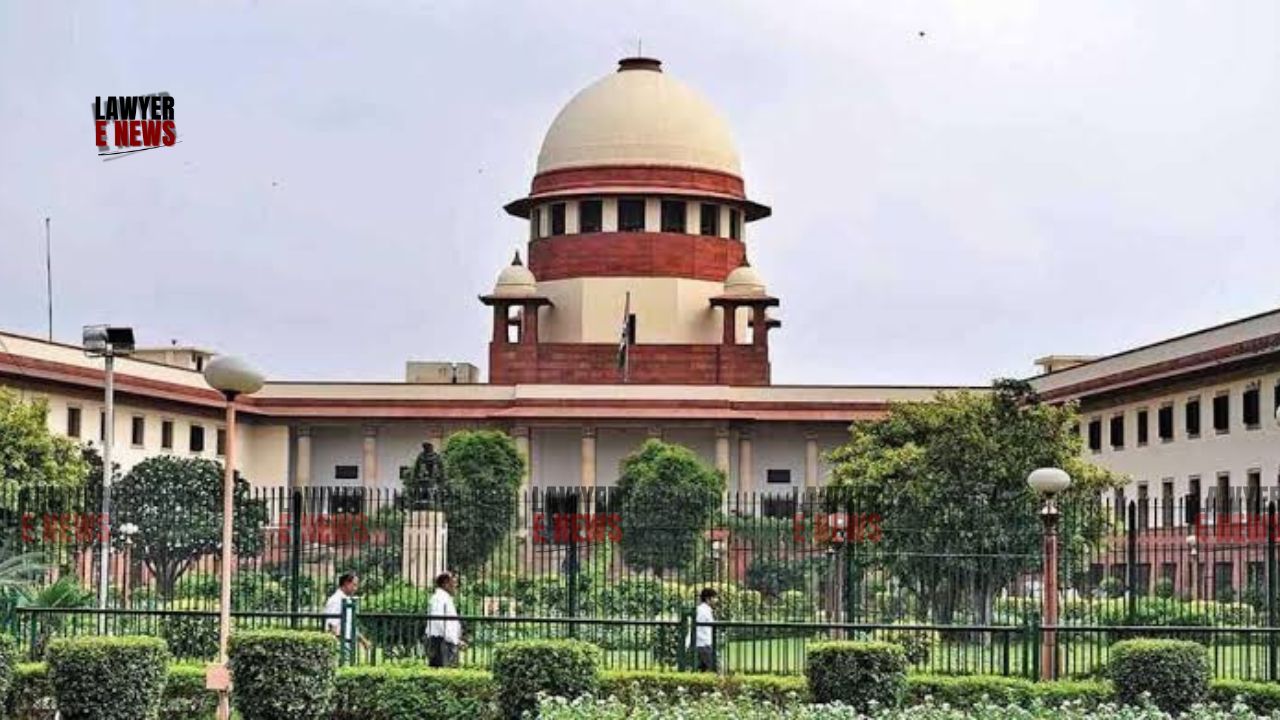-
by Admin
15 February 2026 5:35 AM



"The Appellant/Plaintiff is entitled to receive the full amount payable in respect of the acquisition of the suit property for the Metro Rail Project." – Justice Augustine George Masih, writing for the Supreme Court.
In a significant ruling, the Supreme Court of India on September 11, 2024, delivered its judgment in the case of Lakshmesh M. vs P. Rajalakshmi (dead) by LRs and others, settling a longstanding dispute over the rightful ownership of a land parcel in Bangalore. The court upheld the lawful ownership of the Appellant, Lakshmesh M., over 1 acre and 12 guntas of land, effectively overturning earlier decisions that had awarded compensation to occupants of the land.
The case originated from a dispute over land in Kempapura Agrahara Inam village, Bangalore, concerning property in Sy. No. 132/2, later renumbered as Sy. No. 305/2. The appellant, Lakshmesh M., purchased the property in 1975 from its previous owner, Smt. B.C. Subbalakshmamma, who held lawful occupancy rights under the Mysore Inams Abolition Act, 1954. However, a cooperative society, REMCO Industrial Workers House Building Cooperative Society Limited, and other defendants (referred to as private defendants) claimed possession and sought compensation for portions of the land acquired by the Bangalore Metro Rail Project.
Whether the High Court was correct in ruling that certain defendants were entitled to 30% compensation for sites built on the appellant’s land.
Whether the High Court erred in excluding a portion of the suit property from the appellant's ownership claim.
The Supreme Court first addressed the High Court's decision, which upheld the appellant’s ownership but also awarded 30% compensation to the defendants for sites they had constructed on the land. The appellant contested this, arguing that as the lawful owner, he was entitled to the full compensation for the acquired property and that the defendants, who occupied portions of the land, had no valid claim.
The court found merit in the appellant's argument, emphasizing that the defendants had not filed any claims for compensation throughout the trial and appellate stages. The court noted that although the defendants occupied portions of the land, they had done so at their own risk. The absence of any formal claim or legal standing for compensation meant that the High Court's order granting 30% of the compensation to the defendants was unsustainable.
Regarding the land allotted to Defendant No. 20, the court upheld the High Court’s finding that this site was not part of Sy. No. 305/2, dismissing the appellant’s challenge on this issue.
Justice Masih underscored that while possession of land by the defendants might have given them some equities, it did not translate into an entitlement for compensation. He highlighted that the defendants' constructions were unauthorized and, therefore, did not entitle them to share in the compensation awarded for land acquisition by the government.
"The lack of pleadings, evidence on record, and submissions before the High Court with respect to compensation claims make the earlier judgment unsustainable," the judgment read. The Supreme Court ruled that full compensation for the acquired land must go to the lawful owner, Lakshmesh M.
The court dismissed Civil Appeal No. 9732 of 2024, affirming that Defendant No. 20’s land was separate from the appellant’s property. However, in Civil Appeal No. 9731 of 2024, the court ruled in favor of the appellant, setting aside the High Court’s decision to grant 30% compensation to the private defendants. It concluded that Lakshmesh M. was entitled to full compensation for the acquisition of his property by the Metro Rail Project.
Date of Decision: September 11, 2024.
Lakshmesh M. vs P. Rajalakshmi (Dead) by LRs and others
